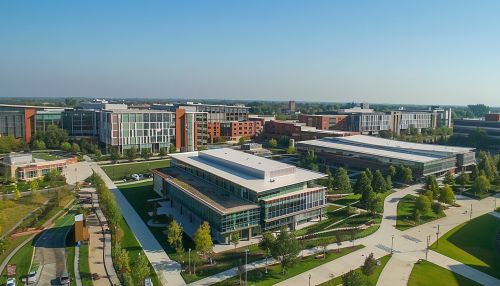Abhay Ashtekar
Early Life and Education
Abhay Ashtekar was born on July 5, 1949, in India. He completed his undergraduate studies in Physics at the University of Mumbai in 1970. Ashtekar then went on to receive his master's degree in Mathematics from the Indian Institute of Technology in Madras in 1972. He completed his Ph.D. in Physics at the University of Texas at Austin in 1974, under the supervision of Bryce DeWitt, a renowned theoretical physicist known for his work on quantum gravity.


Career and Research
Ashtekar started his academic career as a research associate at Oxford University in 1975. He then moved to Syracuse University in 1978, where he worked as an assistant professor in the Department of Physics. In 1984, Ashtekar was promoted to a full professorship at Syracuse University.
In 1993, Ashtekar was appointed as the Eberly Professor of Physics and the Director of the Institute for Gravitational Physics and Geometry at Pennsylvania State University. He held these positions until his retirement in 2016.
Ashtekar's research primarily focuses on General Relativity, Quantum Mechanics, and their intersection in the field of Quantum Gravity. He is best known for his pioneering work on loop quantum gravity and the development of Ashtekar variables.
Ashtekar Variables
Ashtekar variables, named after Abhay Ashtekar, are a set of variables that provide a new way of formulating the laws of general relativity. They were first introduced in 1986 and have since played a crucial role in the development of loop quantum gravity.
These variables simplify the complex equations of general relativity, making them more amenable to quantization. They are particularly useful in dealing with the problem of time in quantum gravity, a long-standing issue in theoretical physics.
Loop Quantum Gravity
Loop quantum gravity (LQG) is a theory that attempts to reconcile the principles of quantum mechanics with those of general relativity. Ashtekar made significant contributions to the development of LQG, particularly through his introduction of Ashtekar variables.
LQG proposes that space and time are not continuous but are instead made up of discrete, interconnected loops. This theory provides a potential solution to the problem of quantum gravity, one of the most significant unsolved problems in theoretical physics.
Awards and Honors
Over his career, Ashtekar has received numerous awards and honors for his contributions to theoretical physics. These include the Senior J.C. Bose Fellowship from the Government of India, the Albert Einstein Medal from the Albert Einstein Society in Switzerland, and the Einstein Prize from the American Physical Society.


Personal Life
Ashtekar is married and has two children. He is known for his passion for classical Indian music and literature, in addition to his work in theoretical physics.
